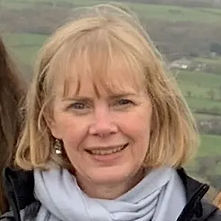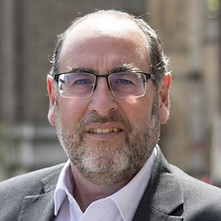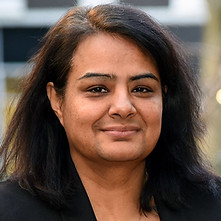
WHY ATTEND?
Transport networks in the UK contribute to a number of health hazards and health inequalities in both urban and rural areas. Poverty and disadvantage is strongly correlated with air pollution, noise and road collisions. Vulnerable groups such as children, the elderly, people with mental disability or long-term illnesses are also more exposed to the health-related externalities of the transport system.
However, transport and spatial planning can be powerful tools for improving the conditions that influence health. Using these tools effectively requires engagement with the public health evidence base, the technical aspects of planning and integrated community development approaches that promote active travel and well-connected places.

WHO SHOULD ATTEND?
Environmental pollution and physical inactivity are key health risks, yet recent research outcomes remain hopeful. Studies show that the evidence for positive impacts related to increasing physical activity is encouraging, especially for town and city-wide interventions.
Addressing health in communities means ensuring that all professionals involved in shaping the built environment, and the embedded transport options that help people go about their daily activities, are working towards promoting healthy lifestyles.
This event is for:
-
Transport and urban planners
-
Population and public health professionals
-
Public transport professionals
-
Highways and transport engineers
-
Active travel professionals
-
Data and modelling experts
-
Marketing and behaviour change professionals
-
Directors of strategy and services
-
Academics and researchers
-
Community groups and campaigners
-
Transport technologists
-
New mobility pioneers
Programme
Please note the programme is currently in development
08.45
Registration
Tea & coffee served in the exhibition
09.45
COUNCIL CHAMBER
OPENING PLENARY:
Missions and visions – tackling the social and commercial determinants of health
Welcome: Cllr Tony Dyer, Leader of Bristol City Council
Chair: Ed Plowden, Portfolio Holder for Transport, Bristol City Council
Improving health to improve the economy – and the Bristol Declaration
Scarlett McNally, Surgeon, East Sussex Healthcare NHS Trust and past President, Medical Women’s Federation
Arpana Verma, Clinical Professor of Public Health and Epidemiology and researcher
Impacts and insights from Tackling Root Causes Upstream of Unhealthy Urban Development (TRUUD)
Health in All Policies: Toolkit for Mayoral Regional Authorities
Dawn Jenkin, Consultant in Public Health and Mayoral Regions Programme
Engaging with the Healthy Low-carbon Transport Hub
Peter Jones, University College London and the Healthy Low-carbon Transport Hub
Followed by panel and audience Q and A
11.15
Morning break
Tea & coffee served in the exhibition
SYSTRA to demonstrate Collision Seek during the morning, lunchtime, and afternoon breaks.
During the breaks at the Transport and Health conference, SYSTRA’s Angus Spence will be demonstrating Collision Seek, a new graphical based application that provides an indication to the types and severity of road collisions at any location in Great Britain. The key aim of the tool is to assist highway engineers and planners to improve the health and safety of UK residents through improved analysis of potential accident locations, and how changes to the highway layout may affect the safety at these locations.
Should you wish to attend these Collision Seek demonstrations, please contact Angus Spence by email: aspence1@systra.com or visit us at the SYSTRA stand at the event. The sessions will be running during the morning, lunchtime, and afternoon breaks.
11.45
Delegates choose to attend 1 of 3 breakout sessions
COUNCIL CHAMBER
1
BREAKOUT SESSION 1:
Leading by example: how health professionals and elected members can boost rates of active travel
Chair: Jo Maher, GP Partner and Physical Activity Clinical Champion, Move More Sheffield
Panellists include:
Ian Walker, Professor and Head of School of Psychology, University of Swansea and author of Motonormativity: how social norms hide a major public health hazard
Pete Dyson, behavioural scientist, University of Bath and Bicycle Mayor of Bath and co-author of Transport for Humans
Paulo Anciaes, Principal Researcher in Transport and Health, UCL Centre for Transport Studies
Followed by panel and audience Q & A, joined by Cllr Ed Plowden, Portfolio Holder for Transport, Bristol City Council
BORDEAUX
2
BREAKOUT SESSION 2:
Bridging the gap: understanding transport models for healthier city planning
Led by: James Woodcock, Lead, Public Health Modelling Group, MRC Epidemiology Unit, University of Cambridge & Belen Zapata Diomedi, Senior Research Associate, MRC Epidemiology Unit, University of Cambridge
Building on our experience with the Propensity to Cycle Tool and health impact assessment in AMAT and the WHO HEAT tool, we introduce a new approach: an agent-based transport and health model designed to better reflect the complex, real-world interactions between land use, transport systems, and population health. The model simulates how different kinds of people—varying in age, gender, location, and travel needs—respond to scenarios of change over time and space. Crucially, it allows us to evaluate not just changes in transport behaviours, but the health and environmental consequences of these changes.
We will showcase how the model has been applied in Greater Manchester to understand potential impacts of cycling infrastructure improvements, urban greening and ambitious active transport mode shares (Go Dutch). Outcomes include changes in transport mode share, physical activity, exposure to pollution and noise, risk of injury, mortality and major disease.
The workshop is designed for urban and transport planners and modellers, public health practitioners, policymakers, and advocates who are interested in quantifying the behavioural, environmental and health impacts of urban and transport decision-making. You do not need a technical background in modelling to attend.
Followed by panel discussion with presenters joined by Eleanor Roaf, Fellow of the Faculty of Public Health and Trustee, UK Health Alliance on Climate Change
PUERTO MORAZÁN
3
BREAKOUT SESSION 3:
Fit for the future? Using insights from data and engagement to deliver healthy neighbourhoods
Chair: Janine Woodward-Grant,
Head of Impact, Sustrans
The Government’s recent NHS Fit for the Future strategy makes a compelling case for bold preventative action, better use of data, and joined-up planning between health, transport, and local authorities. But what does that look like in practice?
Healthy neighbourhoods: have we missed the point? Insights from engagement with local transport users in Greater Manchester
Dom Smith, UK Active Travel Lead, Steer and Dr Graeme Sherriff: Associate Professor, School of Health and Society, University of Salford
Connecting public health and transport through data and incentives
Jack Windle, Chief Sustainable Transport Officer, Better Points
Using rider-generated data in Bristol to support healthier, more resilient communities
Sam Robinson, Director, Love to Ride
How AI-powered data is enabling Bristol’s journey to transform transport and improve public health
Charn Aujla, Business Development Manager, Vivacity Labs and Sam Kirby, Project Manager, Bristol City Council
Pedalling health: data‑driven active travel
Charlie Wilson, Business Development Manager, SeeSense
Followed by panel and audience Q & A
13.15
Lunch break
Refreshments served in the exhibition
14.15
Delegates choose to attend 1 of 3 breakout sessions
COUNCIL CHAMBER
1
BREAKOUT SESSION 4:
Using planning and devolution processes to deliver healthy and active environments
Chair: Zoe Banks Gross, trustee, Bristol Cycling Campaign, Executive Board member, Bristol Walking Alliance & Board member, Playing Out
Vision-led transport, spatial planning and delivering better health outcomes
Nicola Lodge, Associate, Integrated Transport Planning
Localised living for better health outcomes
Andrew Archer, Projects Director, Systra
Devolution and planning reforms: opportunities for healthy transport
Roger Geffen, Campaigner, Low Traffic Future
Integrating active travel ambition into devolution
Ralph Smyth, consultant for Transport Action Network (TAN)
Followed by panel and audience Q & A
BORDEAUX
2
BREAKOUT SESSION 5:
Improving wider health and social outcomes
Chair: Cllr Waseem Zaffar MBE, Birmingham City Council and board Member, The Active Wellbeing Society
Car dependency and modal shift for health: a systems mapping approach
Kate Gray, Public Health Registrar working with the Yorkshire and the Humber Association of Directors of Public Health
East Gateshead: An emerging delivery model of integrated health and transport behaviour change
Emma Allan, Active Travel Manager, Public Health and Wellbeing, Gateshead Council
Delivering healthier journeys on the Strategic Road Network - National Highways’ new framework for active travel investment
Alistair Ryder, Team Leader – Active Travel and Travel Demand Management, National Highways and Hayley Al-Siaidi, Senior Transport Planner, Arup
Using the DfT Connectivity Tool to improve active travel
Robert Singleton, Head of Planning, Housing and Transport, Department for Transport
Followed by panel and audience Q & A
PUERTO MORAZÁN
3
BREAKOUT SESSION 6:
Reducing transport inequalities for children
Led by: Eleanor Roaf, Fellow of the Faculty of Public Health and Trustee, UK Health Alliance on Climate Change & Ruth Gelletlie, Chair, UK Partnership for Active Travel, Transport and Health (PATTH)
Independent travel for children has health, social and educational benefits, but most research focuses on the (urban) school journey.
Panellists include:
Alice Ferguson, Co-founder and Associate, Playing Out
Joel Gilbert, researcher, Tyndall Centre for Climate Change Research
Chanette Marie Oyaas, researcher, Division of Public Health, Sport, and Wellbeing, University of Chester
This session will explore children’s journeys more widely including:
-
Influences on children’s independent travel;
-
children as experts on their local areas,
-
reducing inequalities in opportunities for independent travel
Followed by panel and audience Q & A
16.00
COUNCIL CHAMBER
CLOSING PLENARY
Tackling polarisation and populism: prioritising health in planning policies in a win-win for everyone, so why is it so difficult to communicate and deliver?
Chair: Peter Jones, Professor of Transport and Sustainable Development, University College London and the Healthy Low-carbon Transport Hub
Panellists:
-
Kate Gray, Public Health Registrar working with the Yorkshire and the Humber Association of Directors of Public Health
-
Ralph Smyth, Transport Action Network and Trustee, Foundation for Integrated Transport
-
Sophia Brown, Founder/Director, Bristol Steppin Sistas
-
Neill Birch, Projects Director, SYSTRA
17.00
Event close
Speakers

Chair of the Climate and Health Committee and Board memberFaculty of Public Health

Principal Researcher in Transport and Health
UCL Centre for Transport Studies

University College London and the Healthy Low-Carbon Transport Hub


































